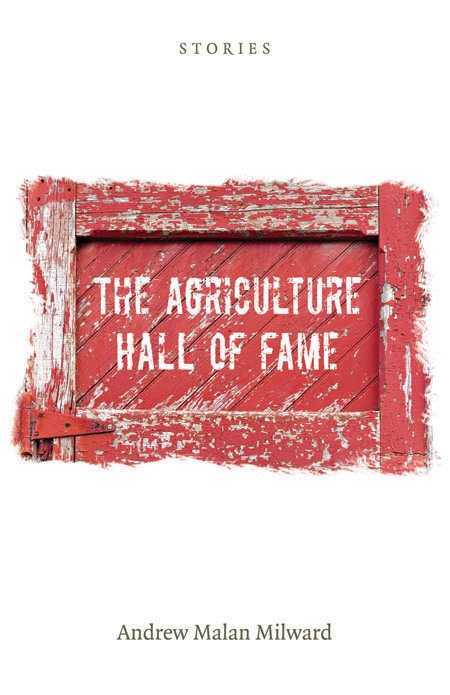The Agriculture Hall of Fame
The ten stories in Andrew Malan Milward’s The Agriculture Hall of Fame are set in “the center of the center of America”: Kansas. And they are all, in their own unique ways, wild, hopeful, and devastating.
From “Quail Haven, 1989”: “Our father is a stark mosaic of his past: his maimed seven-year-old feet, dappled by a friend’s errant buckshot; the 8-to-5 creases framing his adulterous eyes; the broken-down All-State throwing arm, forever aching; his red swollen knuckles and Vietnam brain.” So much is communicated in so little—appropriate for a story that barely makes three pages but packs in a gut punch or two along the way.
The title story unfurls from end to beginning. It’s a tender piece that allows readers, by the end, to fit all the pieces together themselves, a gritty puzzle of loss and love and the natural order of things. “From above, it all seemed so small and ordered: the way the land neatly divided into parallel tracts, the doll-sized simplicity of houses and buildings that looked like they’d never been disturbed, the sinuous roads, twisting but never desultory—always leading somewhere.”
In “The Antichrist Chronicles,” a lake disappears in a “town where everyone knew each other, but no one wanted to admit it.” It’s a place where “everybody’s crazy with looking for something.” Tom, the story’s narrator, is bowed under the weight of his poet-turned-Star-Trek-obsessed father and meth-and-anarchy-obsessed best friend, Juby. He is a boy stunned too young by the loss of important women in his life.
Milward makes elements in his fiction work—from the natural to the structural. In “The Cure for Cancer,” a relationship between a brother and sister deepens even as the sister is dying and snow blankets the world. At no point does this story become sentimental, trite, or predictable. And from “Two Back, 1973”: “Before he let it kill him, the barn saved his life.”
A graduate of the Iowa Writers’ Workshop, Milward is a visiting writer at the University of Southern Mississippi. The Agriculture Hall of Fame won the Juniper Prize for Fiction from the University of Massachusetts Press.
Reviewed by
S. Hope Mills
Disclosure: This article is not an endorsement, but a review. The publisher of this book provided free copies of the book to have their book reviewed by a professional reviewer. No fee was paid by the publisher for this review. Foreword Reviews only recommends books that we love. Foreword Magazine, Inc. is disclosing this in accordance with the Federal Trade Commission’s 16 CFR, Part 255.

